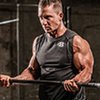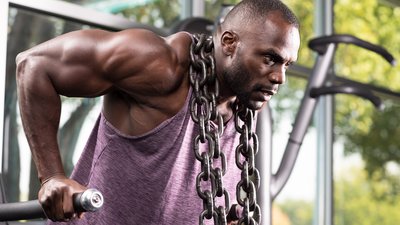Rob Smith was raised on the south side of Atlanta, with his family's roots in Alabama and Florida, a region he refers to as "The Dirty South." After stints at Alabama State and Full Sail University, where he graduated with a film degree, Smith found himself back in Atlanta, waiting tables and kicking the tires on a life that seemed lacking in purpose. From ages 22 to 24, all of his money went to rent and food, but he had a friend who owned a fitness studio and Smith began taking her circuit-training classes for free.
With an improved mental attitude from working out—all of that dopamine and confidence—and only $600 to his name, Smith moved from Atlanta to New York City and began putting his degree as a filmmaker and editor to work. He also joined a rugby team and started taking a few hits to the body that didn't feel so good. At 6-foot-2 and 175 pounds, he was lean. He decided to get serious about bodybuilding as a way to protect himself during matches and give back some of those harder hits.
That was exactly 50 pounds of muscle ago.
Snapshot: Robert Karl Smith II
- Height: 6' 2"
- Weight: 226 lbs.
- Occupation: Video Editor
- Location: Boise, Idaho
Contest Highlights:
- WBFF LA ProAM- 2nd place Muscle Model- pro status
- NGA Northwest Natural- 1st Place Men’s Physique
Social Links:
Building the "Everyday Beast"
Today, Smith is a full-time editor in our cut shop, with a competition trophy the size of a pit bull sitting next to his desk. He also has an in-house cooking show, "Everyday Beast," making monster-sized gains on the Bodybuilding.com YouTube channel. Our headquarters in Idaho is a long way from both the epicenter of the figurative Dirty South and that literal dirty city of The Big Apple, where Smith earned his chops in the editing bay. The distance, however, hasn't been a diversion. Instead, it's allowed Smith the space to flourish.
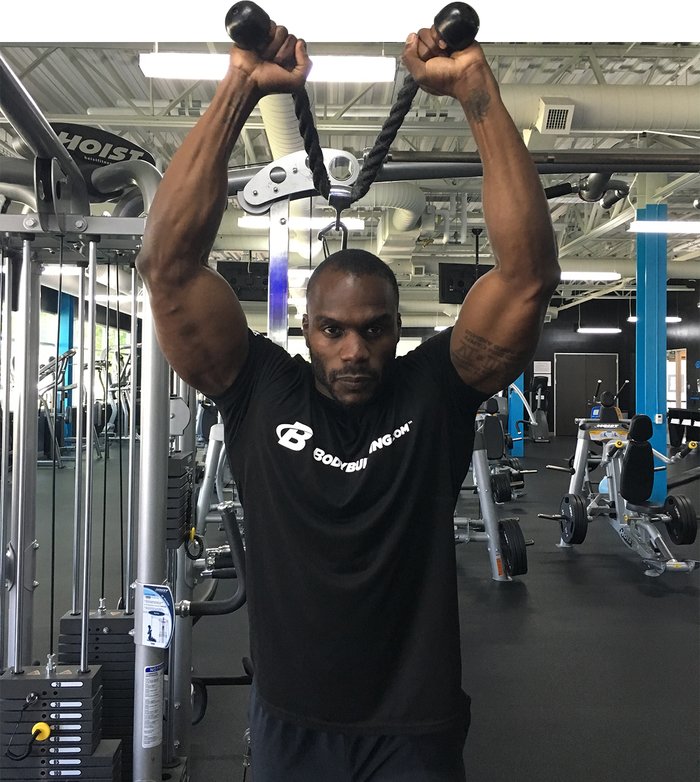
Here's what he had to say about his fitness regimen, his work here at Bodybuilding.com, and his hopes for the future.
How old were you when you started to work out?
I messed around with weights in high school, but I didn't take it seriously. I ran track in high school, too, but I didn't take that seriously, either. My biggest thing was being in the marching band. That was a cool thing down in the south. There's a whole different idea of what the marching band is down there, so that was my focus. I didn't take weightlifting seriously until I graduated from college and hit a slump. I'd gone to Full Sail University, in Florida, but was back in Atlanta waiting tables and trying to make something happen for myself, although it wasn't working out. I was just going through the motions, and it didn't seem like a good life.
Then a friend of mine who owned a fitness studio was like, "Come to these classes and do this, and do this, and do this…" and so I listened to her. I couldn't afford the classes, but she let me come to them for free. Her other clients were 40-60 years old, but it started to pick me up a little. Things just clicked after that, fitness-wise.
So, you were doing circuit training and things like that. When did you start bodybuilding?
I was around 25 when I moved from Atlanta to New York and started really trying to build a career, but I didn't know anybody. I joined a rugby team and that's where most of my relationships started. I was meeting people from all over the place, but the competition was really tough and that's what made me decide to get bigger. I was 176 pounds back then and was taking big hits and giving big hits back. So I told myself, "If you're doing this contact sport, you'd better get some size on yourself, you'd better get in the gym, you'd better eat right."
That's when my strength and size training started, but I didn't start bodybuilding, really shaping the muscle, until I stepped back from rugby and was still going to the gym. I was like, "You're still here. Now what?" And since I was no longer playing rugby, I had that much more time to spend in the gym. In 2013, I entered a INBF (International Natural Bodybuilding and Fitness Federation) Competition, and that was the start of competing.
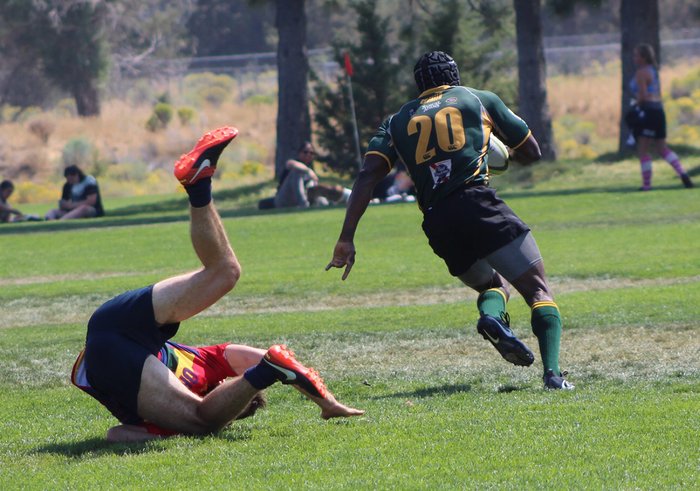
How many bodybuilding competitions have you entered?
After the INBF in 2013, I stepped away for a year. I came here to Idaho and started working for Bodybuilding.com in early 2015, then entered the NGA Northwest Natural and took first in my class. I've done a handful of competitions since, including the NPC Muscle Classic, the NPC North American Championships, the WBFF Worlds in Toronto, and the WBFF Los Angeles Pro Am in 2017. Right now, my eyes are on the 2018 Worlds in Vegas. When I started, I was in the "muscle-model" category, but I've gone bigger with each competition. I'm now 225 pounds, but am gearing up to gain another 20 for Vegas.
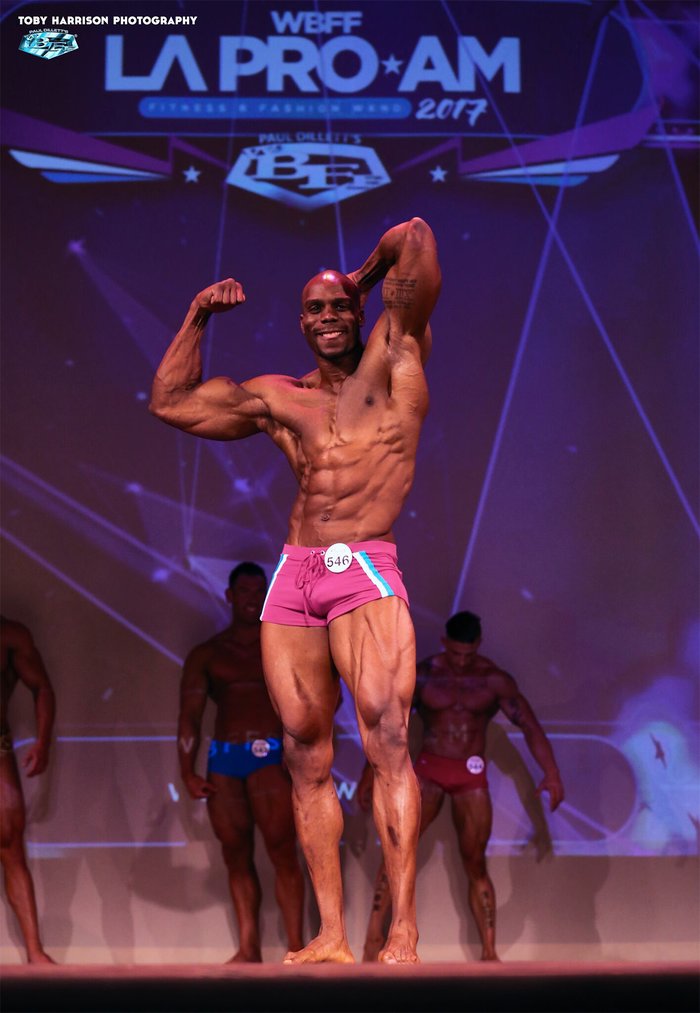
When you're not in the gym, you're working here at Bodybuilding.com. What's your job, and what's it like working here?
I'm a video editor working on everything we shoot and edit in-house. It's a fun environment, and it's great to be surrounded by people who are passionate about the content we put out, and about the industry. Most of the time, when you work for a company, you'll find people who are great at their skill set but not connected to the company's mission. It's completely different here. Right now, we're doing our company-wide transformation challenge, so we are really practicing what we preach.
The people I work with have a ton of knowledge and talent, and it's just a great, supportive vibe around here. When you walk through the front doors, there's literally a vertical barbell on each door that serves as the handle. That's the gateway right there. Just that physical sensation of grabbing that barbell every day and opening the door gives you an immediate connection to the weight room. After that, everything falls into place.
Speaking of the transformation challenge, I noticed that you're doing some type of volunteer or charity work associated with your transformation goals. Can you speak to that?
I'm raising money for No Kid Hungry, which is an organization that provides meals for kids in schools across the country, offering free or reduced-price lunches, after-school meal programs, and summer meal programs. The summer program is a big one because some of these kids who get fed in the cafeteria during the school year practically starve during the summer.
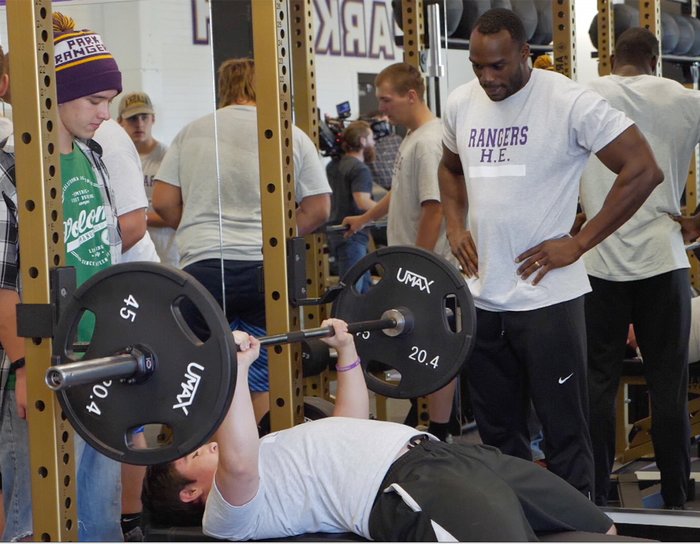
When I was doing my transformation this time around, I started thinking about how I have a good job, and I can go to the grocery store and pretty much pick what I want to eat. So, how can I sit here and complain about all the calories I have to consume to gain my 20 pounds of muscle when there are people in my community struggling? There's nothing wrong with fueling our bodies, and there's nothing wrong with having aspirations to grow, but at the same time, if you flaunt that you're growing, you have a responsibility to put something back into the community.
How did your cooking show, "Everyday Beast," come about?
Being from the south, cooking is a big part of my culture, and I've always been comfortable in the kitchen because of that. But "Everyday Beast" came about because of my connection to issues like childhood hunger and the communal power of sitting down, having a meal at a table and sharing with your family, or sharing with your friends—the bigger emotional stuff and the stories we tell at the table. That's what "Everyday Beast" attempts to capture. We've published three episodes and there are five more in the can, getting edited.

I saw a quote on your Instagram that says, "Remember the days you prayed for the things you have now." What does that mean to you?
I remember being hungry. I remember not knowing where the next meal was coming from. I remember the lights being turned off in my apartment after college, and not being able to find a job in the industry, not being able to do what I went to school for. Now, I've got the golden cup, you know? I work specifically in what I got a degree in. I work in an industry that I enjoy, that's a part of my lifestyle, and I am able to go to the grocery store and buy whatever I want. In a very simple way, that is huge.
And yet, sometimes I get like, "Oh, I want this," or "Oh, this is a bad day," but then I remember that I've got that fridge full of food, I've got a car with gas in it, I've got a house, and I've got all the things that really matter. So, yeah, I can want more, stay hungry, stay motivated, and keep grinding, but 10 years ago I didn't have any of this and it's important to remember that and stay grateful.
What's your favorite feature on the Bodybuilding.com site?
My favorite features are the numerous calculators that we have. If you need to figure out your macros, you got it right there. And the biggest thing that people need to understand is that the tools are right at your fingertips. You just have to open the door a little, and then everything's accessible.
What are your goals?
I want to continue to be real about this lifestyle, and to show people that it's not all about the weights. Five years from now, I want people to look back and say that "Everyday Beast," for instance, was a platform for growth, for community, and for opportunity for me, but I also want people to see that it's about something different for me, too.
It's not all about the muscle, because the muscle can be gone. It's about those relationships you build in the gym, about what you're able to do beyond doing the gym work. If I build my body in the gym, fine, I got the muscles. But when I go back to Georgia and see my little cousins, I need them to look up to me for what's real, which is a guy who's not selling drugs but building a career, even if he does look fit.
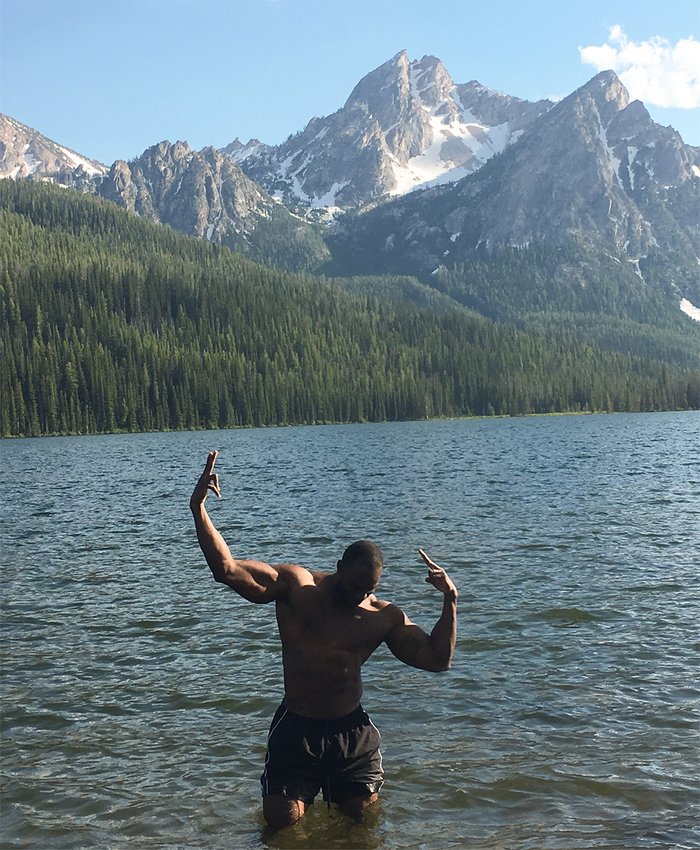
Being a WBFF pro doesn't mean anything if I'm not able to lift my little cousins up mentally. If you focus on the size and the muscle, it's all meaningless. So I do have personal and career goals, but what's more important to me is that I'm giving back.
What does your workout routine and diet consist of?
I usually train intuitively, with no set exercise layout when I go into the gym. I know what I want to focus on and I target those areas. I also rarely train longer than one hour these days, although some days I train twice, with more power movements for a particular body part in the morning, then more isolation movements and higher reps for the same body part in the evening workout.
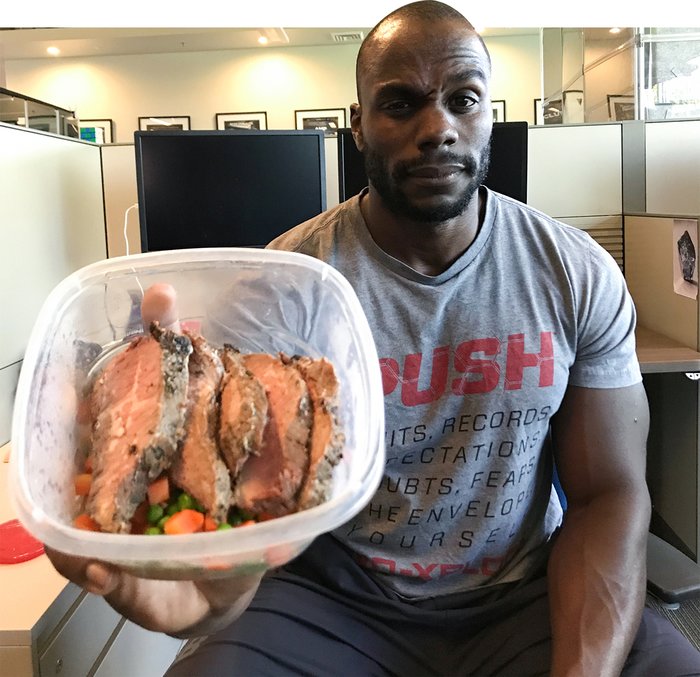
I am a big fan of volume training and training beyond failure. If my goal is 12 reps, I don't want to be able to reach 11 reps. Long-term growth comes from never being able to hit that number you're after.
Here's what a week might look like:
Monday: Chest/abs/plyos
My current focus is upper chest, so I will start out with a dumbbell or machine fly pre-exhaust, then move straight to incline barbell press, doing 4-5 sets of 10-12 reps.
Tuesday: Back/calves/rugby practice
My current focus is lat development, so I will start out with 4-5 sets of pull-ups and superset them with lat pull-downs, doing pull-ups to failure and 10-12 reps of pull-downs.
Wednesday: Legs/abs/plyos
My current focus is quad development, so I will start out with 100 reps of leg extensions, then go straight into front squats, doing 3-4 sets of 8-12 reps.
Thursday: Shoulders/rugby practice
My current focus is on building strong shoulders, so I'll do Arnold presses and barbell presses, with 3-4 sets of 8-12 reps each.
Friday: Arms
Lately, I've been doing close-grip bench presses for strength and size.
Saturday: Rugby practice/abs and gym work
This is kind of a mixed-up day, with extra credit for working a weak body part like my quads, hamstrings, or shoulders, depending on where they're at. I'll do isolated exercises for those, either in the morning or after practice, probably 3-4 exercises for 30-45 minutes total.
Sunday: Rest day
My current dietary goal is 4300-4500 calories per day. I track as I go using my sparkpeople app with a good day looking something like this:
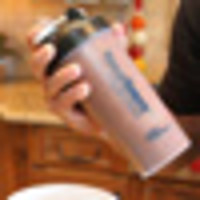 Protein Shake
Protein Shake
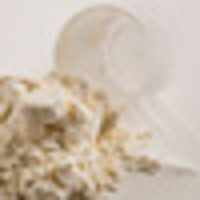 Protein Powder
Protein Powder
 Whole Milk
Whole Milk
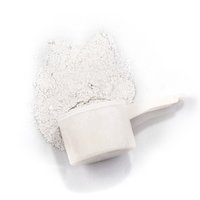 Creatine
Creatine
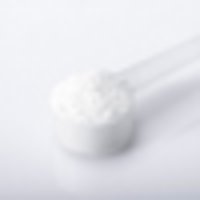 Beta-Alanine
Beta-Alanine
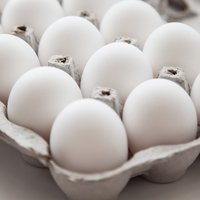 Eggs
Eggs
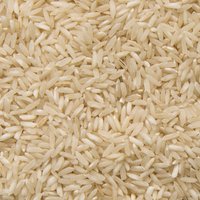 White Rice
White Rice
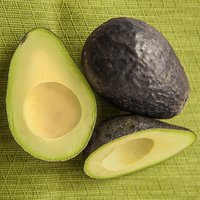 Avocado
Avocado
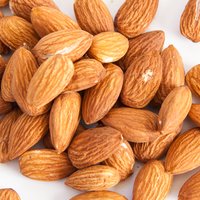 Almonds
Almonds
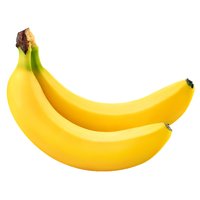 Banana
Banana
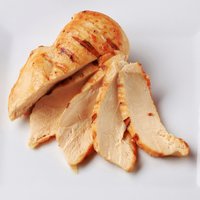 Chicken
Chicken
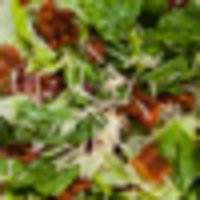 Green Salad
Green Salad
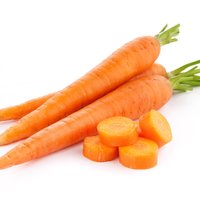 Carrots
Carrots
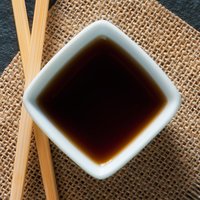 Teriyaki Sauce
((Thai sauce))
Teriyaki Sauce
((Thai sauce))
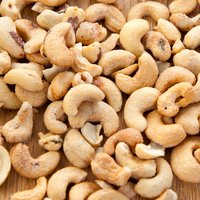 Cashews
Cashews
 White Rice
White Rice
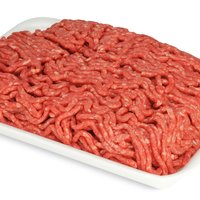 Ground Beef
Ground Beef
 White Rice
White Rice
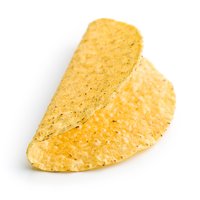 Taco Shell
Taco Shell
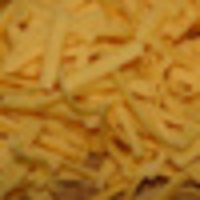 Cheese
Cheese
 Ground Beef
Ground Beef
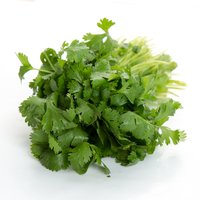 Cilantro
(sauce)
Cilantro
(sauce)
Supplements:
